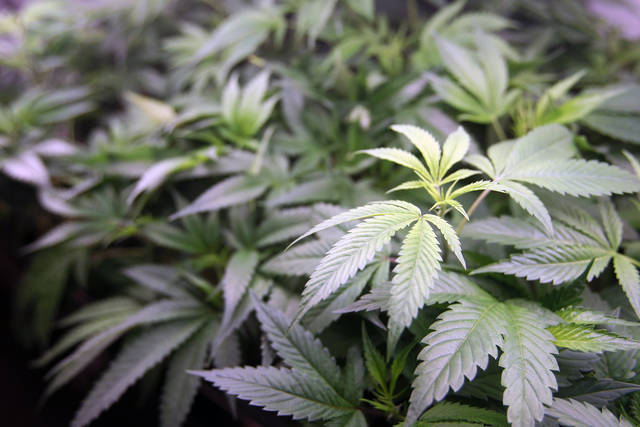A slew of bills focused on revising the state’s medical marijuana dispensary system have been introduced during the 2018 legislative session.
While dozens of bills were introduced that would revise existing statutes to accommodate medical marijuana users, others proposed wide-ranging revisions that would allow more people to qualify for medical marijuana.
In particular, Senate Bill 2248 would, if passed, allow anyone who has been authorized to use cannabis in another state — or, in some cases, other countries — to qualify for medical marijuana use in Hawaii. At the same time, the bill expands the definition of “debilitating medical condition” to include opioid addiction, allowing recovering addicts to use marijuana to alleviate the effects of opioid withdrawal.
Introduced Jan. 19 by Maui Sen. Rosalyn Baker, SB 2248 also broadens the range of products marijuana dispensaries are permitted to sell to include transdermal devices — the law currently only permits transdermal patches — and cannabinoid suppositories.
Furthermore, the bill also prohibits employers from firing employees for being qualified medical marijuana patients and extends the state’s prohibition of discriminatory practices to include prohibiting discrimination based on legal use of marijuana.
Similarly, SB 2651 would broaden hiring options for dispensaries. While Hawaii dispensaries are prohibited from hiring convicted felons, the bill would allow dispensaries to only deny employment to people convicted of Class A or B felonies, or certain Class C felonies involving fraud, embezzling, endangering minors or drug offenses.
Another bill, SB 2631, would permit dispensaries to provide cannabis free of charge to qualifying patients whose family income is at or below the federal poverty level, while SB 3053 would allow dispensaries to distribute edible cannabis products, provided they fit rigid production requirements.
More dramatic, however, is SB 2537, which would legalize outright the cultivation, purchase, possession and use of marijuana for residents 21 years of age or older.
Introduced by Big Island Sens. Russel Ruderman and Josh Green and Oahu Sen. Will Espero, the bill would permit the private possession of up to five cannabis plants and the purchase of up to 1 ounce of marijuana at a time. In addition, the bill would establish a general excise tax upon cannabis sales, while establishing within the state treasury a drug treatment special fund, which would use cannabis sales tax revenues to support drug treatment programs statewide.
Meanwhile, other bills introduced last year were re-entered into this year’s legislative session. House Bill 662 establishes a series of price controls to be set by the director of health, who would be able to set and enforce maximum retail prices for medical marijuana. If passed, the price controls would take effect July 1.
Another 2017 bill, HB 108, would establish a marijuana dispensary special fund within the state treasury, which would appropriate 15 percent of all general excise tax revenue reported to the Department of Health each year.
The state also would appropriate an undetermined amount of additional tax revenue to the fund each year, according to the bill.
The 2018 legislative session will adjourn May 3.
Email Michael Brestovansky at mbrestovansky@hawaiitribune-herald.com.







More bills to regulate something that hasn’t even opened yet here on the Big Island.
What the State and Counties should do is Stop letting workers take the official vehicle home.
The Taxpayer buys the gas.